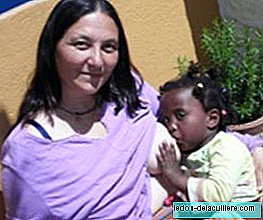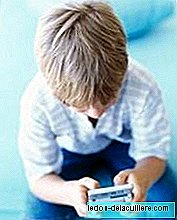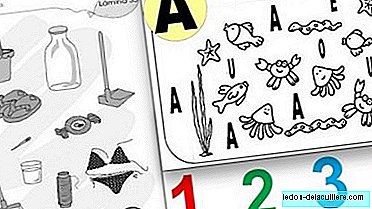
Although there is no longer any doubt (neither scientifically nor popularly) that breastfeeding is the best food for babies, there are still numerous prejudices and ignorance of breastfeeding techniques and many aspects related to it.
Lola already explained to us that you can breastfeed without problems during pregnancy and now we will explain how it is possible to breastfeed without even giving birth.
Yes, adoptive mothers can also breastfeed and there is more and more that they do, although it is a very minority. The technique is called induce breastfeeding and it is something different to relate: when a woman interrupts breastfeeding (due to illness, travel or any other reason) and then decides to produce milk again.
What may seem so strange or incomprehensible to some is in many cultures the usual way to feed babies when the mother dies in childbirth or shortly thereafter and the grandmother or aunt are in charge of parenting.
The ability to produce milk is determined by the correct chest stimulation. The more and more frequent the stimulation, the more milk is produced. That the stimulation of the chest is preceded by a pregnancy facilitates the whole process, but it is not an indispensable condition. Therefore, women can also achieve this after a hysterectomy (removal of the uterus) or with menopause. The success factors of a breastfeeding induction are:
- That the mother has a strong desire to breastfeed
- That the chest stimulation is correct
- That the mother has an environment that supports her and strengthens her confidence
- The baby's age, her ability to breastfeed, how she has been fed before and the time since she stopped breastfeeding (if she ever did). The babies older than 6 months They may have lost the sucking reflex.
It is a procedure with a very high success rate: There are American statistics that indicate that 36% of women who try, at two months, are feeding the child only and exclusively with their milk. The rest, 64%, produces milk, but it has to complement the feeding of the baby with bottles.
That it is possible does not mean that it is easy. It's hard. It requires the stimulation of the woman's breast with a milk pump frequently for a minimum of two months before the adoption and when the baby arrives it also requires exclusive dedication.
In this article by El Mundo on this subject, two doctors who practice it in Spain are mentioned: Carmela Baeza (Madrid) and Luis Ruiz (Barcelona) who imported the idea of Burkina Faso and Germany. But really any expert lactation consultant or IBCLC (the international title) can teach the technique to mothers who want it.
But what leads a mother to want to breastfeed her adopted child? The mother in the picture is called Esther and her Ethiopian daughter Martha. These are his words and his experience, I think he explains everything:
"Breastfeeding is much more than food. It is, above all, mother-child communication and skin to skin contact. A way to receive and transmit love and security in a language that babies capture perfectly. It would be a serious mistake to assess the success of my experience with Martha only based on the amount of milk I have generated. Even without having a drop of milk it is good to offer breast and maternal skin contact to any baby, adopted or biological. But, in addition, as an adoptive mother, I believe that breastfeeding is especially important for adopted children because they have previously experienced the process of loss of the mother and have a special need to redo that bond. The first day I was alone with Martha, at the orphanage, I offered her breast. It was instinctive. She looked at me with her big eyes and got hooked. It was a feeling of deep emotion, as if we were both aware that the bond was beginning. And so far three years later ... If long lactations in biological babies are already questioned regularly, for many people breastfeeding an adopted baby borders on witchcraft. "
Via | The World and book "Breastfeeding" by Fedecata More information | Alba Breastfeeding More information | La Leche League












